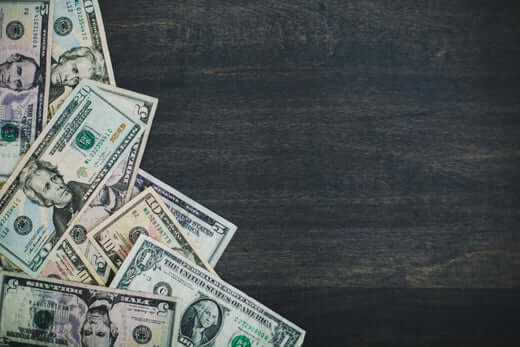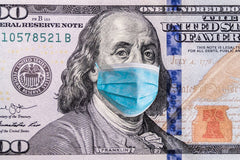Your cart is currently empty.
Free shipping on orders over $50

- Nov, 05 , 19
- 1 comment
Bill Counters For Small Businesses
Contents
- Cash Counting Machines For Small Businesses
- Where money counting machines buy your time back for you.
- Easy Armored Truck Pickups
- Cut Down on Internal Theft
- An Air of Authority
- No More Human Error
- No More Bank Error Fees
- Stay Safe From Counterfeiters
- Keeping Accurate Cash on Hand
- Stage Register Drawers With Ease
- Consider it an Investment
Cash Counting Machines For Small Businesses. Does my business need a money counting machine?
If you’re running a small business, cash is your life’s blood. Credit card transactions cost a fee, and are mostly a convenience for customers. Checks are old fashioned, and take too much time to process. Cash is easy to deposit, and it’s guaranteed to be worth the value that’s printed on it.
But dealing in cash has its downsides. For one thing, you’re vulnerable to internal theft. This isn’t an issue with cash or credit cards. For another, it means you’ve got to sort and count bills.
For retailers, cash is even more of a headache. Cash transactions require making cash change, so you’ve got to make sure your registers are staged with appropriate bills for all transactions. Again, this involves sorting and counting.
Electronic bill counters can make these tasks quick and painless. Here are a few benefits of cash counting for small business users.

Saving Time = Saving Money
Where money counting machines buy your time back for you.
One of the oldest business sayings in the book is that “time is money”. Every minute you spend counting cash is time that could be spent doing something more productive. Would you rather be sitting at home counting $1 and $5 bills, or would you rather be at a lunch meeting with a new client?
If one of your employees is doing the counting, things get even more complicated. This is a sensitive task, which means you’ll only want a trustworthy person doing the job. As a result, you’ll be paying one of your highest-paid people to do a job that can be performed by an inexpensive machine.
Needless to say, that’s not the best way to spend their wages.
Easy Armored Truck Pickups
Waiting for the Brinks or CIT cash pickup truck is kind of like waiting for the cable company to set up your service. You’ve got a general idea of when they’re going to show up, but the exact time is as mysterious as the formula for the original Coke.

There’s a reason for this. Armored trucks are prime targets for violent criminals, and one of the ways they protect themselves is by constantly varying their times and routes. This is good for them, but it’s inconvenient if you haven’t got your cash drop counted when they show up.
We’re not saying that a cash counting machine will completely fix this problem, but it makes your morning cash count quick and painless. This makes it easier to get done before the armored truck arrives for your pickup.

Cut Down on Internal Theft
Internal theft is a major source of losses for all businesses. This is particularly true for small businesses, and even more so if they primarily deal in cash. Think about it. How hard is it for someone to slip an extra $10 or $20 out of a pile of bills at the end of every shift?
Without a foolproof way of tracking the amount of cash coming in and out of your business, these kinds of losses will end up being written off as human error. Bill counters remove the human from the mix, increasing reliability and accountability.

An Air of Authority
Speaking of human error, there’s something quaint about a business owner – or  salaried manager – sitting at their desk and counting money. It looks like something you’d see in an old-timey movie. But you know what it isn’t? Authoritative.
salaried manager – sitting at their desk and counting money. It looks like something you’d see in an old-timey movie. But you know what it isn’t? Authoritative.
Dishonest employees can tell when someone is susceptible to theft, and counting money by hand is a sure way to end up getting swindled. With a cash counting machine in plain sight, employees will know that you’ve got an eagle eye for finances.
Not only will this deter dishonest people from stealing your hard-earned money, it will also reassure honest employees that you’re keeping a close eye on your business.

No More Human Error
We’ve already touched on human error. But did you know that it’s actually the main cause of losses for small businesses? Simple, everyday human mistakes can cost more than the most determined thief.
The most obvious way this can happen is a simple miscount. If you had to count a stack of 232 bills, would you really be certain that you were correct? Or would you answer 231 or 233, confident that you’d gotten things right? Simple distractions frequently lead to this kind of error, which is something that never happens to a machine.
And this is assuming that all of your bills have been properly sorted. It’s just as easy – and more costly – to confuse bills of different denominations. A $1, $10, or $100 bill is easy to mix up in a stack of similar bills, and can lead to a drastically different count even if you’ve accurately tallied the number of bills in the stack.
Some bill counters, including many of Carnation’s machines, offer mixed value bill detection. These machines don’t require you to sort by denomination. Instead, they scan each bill as it passes through, determine the denomination, and keep track of the total value. Not only does this avoid miscounts, but it saves you time by eliminating the need to sort your bills by denomination.
No More Bank Error Fees
If you mis-count your bills, you’re going to write the wrong number on your deposit slip. If you write the wrong number on your deposit slip, your bank may credit your account with the wrong amount. If they do, you’re going to be charged an error fee when the mistake is discovered.
This is one of the hidden costs of mis-counting your money. Not only does it lead to short-term inaccuracy, it can also lead to long-term expenses. These costs can add up over time, particularly if mis-counts are an ongoing concern for your business.
Stay Safe From Counterfeiters

Some cash counting machines are designed with counterfeit bill detection. It’s up to you if you need to pay more for a machine with this option. If this isn’t a problem for you, you can save money by buying a more basic machine that doesn’t offer counterfeit detection. That said, if counterfeits have been a problem for you, a counterfeit detecting machine may be just what the doctor ordered.
Not all of these machines work the same way. As a matter of fact, there are three different types of counterfeit detection, each with its own costs and benefits.
- Magnetic detection. Bills from most countries are printed with ink that contains magnetized iron particles. When scanned with a magnetic scanner, these particles give off a telltale reading. This is the most widespread method of counterfeit detection. While it’s very reliable for detecting counterfeits, it sometimes alerts on legitimate bills. This happens because the iron particles in the ink lose their magnetism over time, causing old bills to “look” counterfeit.
- Ultraviolet detection. Most industrialized countries print their currency using ultraviolet-sensitive ink. This ink displays a stripe, watermark, or other distinctive marking when its illuminated with an ultraviolet light.
- Infrared detection. This method is virtually identical to ultraviolet detection, except the bills are printed with infrared-sensitive ink as well as ultraviolet-sensitive ink. This is the most reliable method, since no counterfeiters are known to have duplicated it. However, it’s also the most expensive.
As we said, this is a “bonus option”. Some machines offer it, others don’t. You can also find bill detectors to scan bills separately if you don't often suspect counterfeit bills.
Keeping Accurate Cash on Hand
One challenge of running a small business – particularly a retail business – is keeping enough cash on hand to make change. This is essential for businesses that deal in a lot of small-value transactions; for example, convenience stores, who sell a lot of newspapers, sodas, and milk.
Many cash counting machines have a value counting feature. This keeps track not only of how many bills you’ve counted, but how many bills you have in each denomination. This can quickly alert you to problems with your cash on hand. For example, you can send an employee for change if you’ve got a lot of $20s but not a lot of $1 bills.
Stage Register Drawers With Ease
Most retail stores try to keep pre-set arrangements of bills in the register drawers. For example, a cashier might start the day with three $20 bills, twelve $10 bills, thirty $5 bills, and fifty $1 bills to make change for customers. This can be a headache for a manager or owner to set up at the beginning of the day.
Some higher-end bill counters have a batching feature, which enables the machine to dispense a pre-determined number of bills of a certain denomination. This helps you set up register drawers with ease.
Consider it an Investment
A money counting machine is a business expense. Like any business expense, you need to think about what options you’re going to need on your machine. Does your business really require counterfeit detection, or would you be better off spending less on a more basic machine?
No matter what you need, Carnation makes the best cash counters on the market. We also offer coin counters, to help you sort out the small change along with your cash. If your small business needs a cash counting machine with big league performance, we’ll deliver exactly what you need.
Helpful Resources:
https://www.startupguys.net/6-advantages-of-using-a-cash-counting-machine-for-your-small-business/
https://www.shopkeep.com/blog/cash-management-solutions-retail#step-1
https://thethrivingsmallbusiness.com/cash-handling-policy/
https://smallbiztrends.com/2017/08/cash-handling-best-practices.html
Search
Custom Menu
Recent Post
Archive
- April 2022
- September 2021
- July 2021
- February 2021
- December 2020
- September 2020






1 comment
Cash Counting Machine
Feb 26, 2020 at 03:20Great blog thanks for sharing.